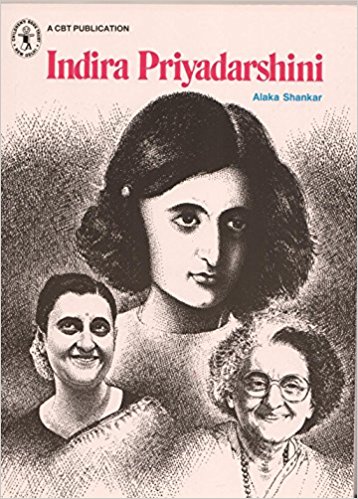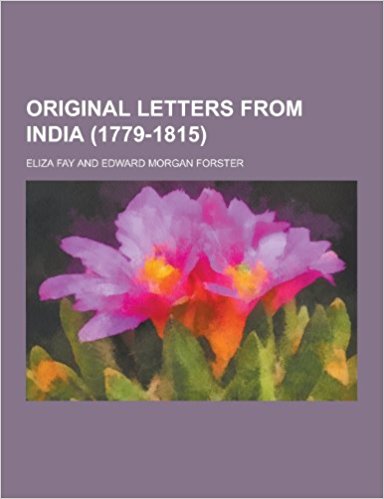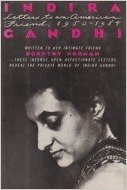Soviet Indian friendship…is an important factor for peace and stability in the current tense situation and an example of how countries with different systems can fruitfully cooperate
Archives
Jan-Feb 1987 . VOLUME 11, NUMBER 1The Children’s Book Trust just having completed 25 years of publication has always been striving to bring out books which would appeal to children of different ages with varied interests and have succeeded to a large extent. The three books under review were Adventures on Golden Lake. Revenge and The Lure of a Zangrila. All three are fast-paced and exciting, gripping the reader’s attention and holding it.
There are very few books concerned with science or science fiction published in India that would interest children in the 12 + age group. CBT has endeavoured to and has been successful to a certain extent in this respect.
1987
Indira Priyadarshini, Alaka Shankar’s eminently readable book, rich in bio¬graphical and historical detail, laced with ancedotes, is essentially the story of a girl by that name and how she grew from child to woman.
1987
Shy, gawky and afraid of the dark as a little girl. Self-righteous and confident during her ‘Vanar Sena’ days. Elegant and poised as a bride. A beautiful, caring mother, full of games, puzzles and stories. A shrewd, tough politician and a doting grandmother. That was Indira Gandhi declared in 1977 according to a special gallup poll in America, as ‘the most admired person in the world’.
The Dragon Kingdom is basically a nar¬ration of the author’s impressions of Bhutan formed during his travels in 1961 as a part of the mission sent to explore the terrain and define the possible para¬meters of communications and Bhutan’s security coverage. The book briefly men¬tions the purpose of this visit.
Bharathi Shivaji’s book The Art of Mohiniyattam is a practitioner’s rich tribute to this art form. Contrary to Shanta Rao’s apprehension (as echoed in the preface) about the inadequacy of words vis-a-vis gestures and movements on stage, to delineate the technique of dance, this book represents a meeting-ground for literature and art, where articulation is wholesomely supplement¬ed by photographic and grahic illustra¬tions to enable even the lay reader apprehend the rich nuances of this dance form.
1987
Aakaasa Veeduhal, (Homes in Heaven) is the latest novel by Vasanthi, one of the leading women writers in Tamil today. Translated into English by Dr Gomathi Narayanan, it has been selected by the UNESCO for inclusion in their collec¬tion of representative works.
Is there such a thing as a woman reader? Is it possible to say that women read differently from men? Or, for that matter, that women write differently from men? Or even that men write differently about women than they do about men? And if any, or all of these is/are the case, who is different, and how, and, as impor¬tant, why?
1987
The Indian woman perhaps more than her sisters in other parts of the world is a fascinating creature. In spite of all the amazing odds against her, she emerges undefeated in spirit though often humbled in circumstance. Time and again we come across typical personalities—‘the eternal mother, the young urban working woman, the desperate survivor—a fraction of some we see when we look into each other’s eyes.
1987
We have good novels and great ones. We have poetry that is good and poetry that is great. Vikram Seth’s The Golden Gate is a masterpiece both as fiction and as verse, This simultaneous triumph will not come as a surprise to those who have read Seth’s engaging travelogue which appeared in 1983. From Heaven Lake marked the com-mencement of a creative journey, a journey of immense promise.
Krishna Chaitanya’s extenuation for adding yet another to the two thousand odd editions of the Gita in seventy five languages that he has himself counted is indicated in the title of the book itself. His is the Gita for the modern man. It is of some importance to note that the visualized reader is modern not in the condescending sense of someone who has little or no Sanskrit, which, alas, is only too true of most potential readers of this book
1987
After centuries of hostility between Christendom and the Islamic world, a most heartening phenomenon has appear¬ed in the field of scholarship—the Christian missionary writing on Islam, not with a view to denigrate, but, to convey his understanding of the faith borne out of study and empathy. Wilfred Cantwell Smith is one such scholar, another is the Rev: Christian W. Troll, Professor of Islamics and Christian-Muslim Relations at Vidyajyoti Institute of Religious Studies in Delhi. He is also a regular Visiting Professor at Jnana Deepa Vidyapeeth in Pune.
In the ‘Summing Up’ chapter of his memoirs, Air Chief Marshal Lai perti¬nently remarks: ‘There are certain psy¬chological factors to consider … in a pilot’s job. An airman fights alone, the soldier and sailor alongside many others’. It is this circumstance that largely shapes the ethos, values and outlook of the combat cadres of the Air Force.
Eliza Fay is yet another welcome addition to Raj lore. For those familiar with the other diarists and memsahibs of note, Fanny Parks and Emily Eden who penned their journals in the 1820s and 30s, to the very latest in the genre, the diaries of April Swayne Johnson, Eliza Fay’s letters and journal come on like a breath of fresh air.
The historiography of British bureau¬cracy in India, more particularly of the Indian Civil Service, has been over-saturated by an aura of romantic mythology. This slender volume is a refreshing contrast making fun of the traditional make believe. It is admittedly a personal recollection of ‘anecdotes and descriptions’ of the author’s ‘experience as a Government officer in India during the decade before World War II…
At the time of the UNESCO Conference in Delhi in 1959, my husband was Chief of Protocol. I suddenly had a visit from Dorothy Norman whom I had never met before, asking me to collect some UNESCO papers which she wanted to send to Indira Gandhi. Dorothy Norman gave me the impression of a woman who did not know the Nehrus but was eager in any way possible to cultivate them.
Books on Indian jewellery are plentiful but this is among the first few devoted to rings. The book does not claim to be exhaustive in discussing the various categories of rings but does make the reader aware of the symbolic function of rings in certain cases other than those which are merely decorative. The illus¬trations are mainly of those which are available and this information could per¬haps have been extended by including some that have been found in excava¬tions, although admittedly the number and designs of these are extremely limited.
Five years after the death of Eric Stokes, he is still greatly missed. A generous friend with an attractive sense of humour, he was also a scho¬lar of unusual gifts. As this posthumous and sadly incom¬plete book shows, his work fell out of the common rut; nor could he be labelled as be¬longing to any particular school.
Jawaharlal Nehru was throughout his life, a teacher and an educator to others as well as to himself. From jail he wrote the letters to his daughter giving to Indira and the younger generation in India glimpses of world history. In the Indian National Congress he was the preacher of new
of socialism, secularism and internationalism. In Parliament he often functioned as a school master to the nation.





